The Rotary Club of West Springfield has a long history of giving… addressing community needs at both the local and international levels. Each year, the Club holds several major fundraisers which not only provide critical funds to the Club’s causes, but enrich the greater West Springfield community through the events themselves. One hundred percent of the profits from all fundraising events are invested into community and international projects; no funds are spent on the Club’s administrative expenses.
Community Grants Program
Through the West Springfield Club’s proprietary Community Grants Program, eligible organizations can apply for grants on an annual basis. Awards are prioritized based on requests which demonstrate the maximum benefit to the greatest number of people, with a preference towards benefitting the local community.
District Grants Program
The West Springfield Club, along with sixty other western Massachusetts and northern Connecticut Rotary Clubs, belongs to District 7890. The District provides its Rotary Clubs with the opportunity to receive District Grants, compounding the Club’s investment in a project, and increasing its impact.
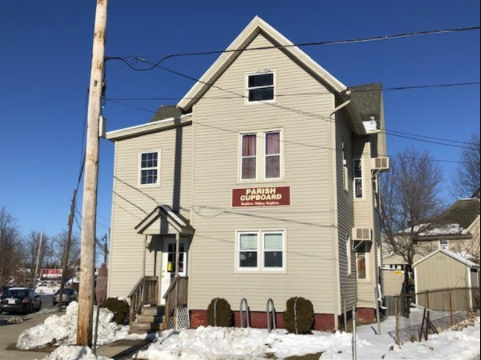
The Parish Cupboard provides meals and groceries to individuals and families in need throughout West Springfield and its surrounding communities. These low-income individuals and families rely on the groceries to supplement their other food sources. In addition, there is also a homeless population living within one mile of the facility. For this at risk group, the Parish Cupboard is their primary source of food, and serves meals to approximately fifty people per day.
The Club utilized the District Grants program to complete two complementary projects to benefit the Parish Cupboard. The District matched the Club’s funds two to one, increasing the Club’s $2,500 commitment to a total budget of $7,500 for the two projects.
The Club utilized the District Grants program to complete two complementary projects to benefit the Parish Cupboard. The District matched the Club’s funds two to one, increasing the Club’s $2,500 commitment to a total budget of $7,500 for the two projects.
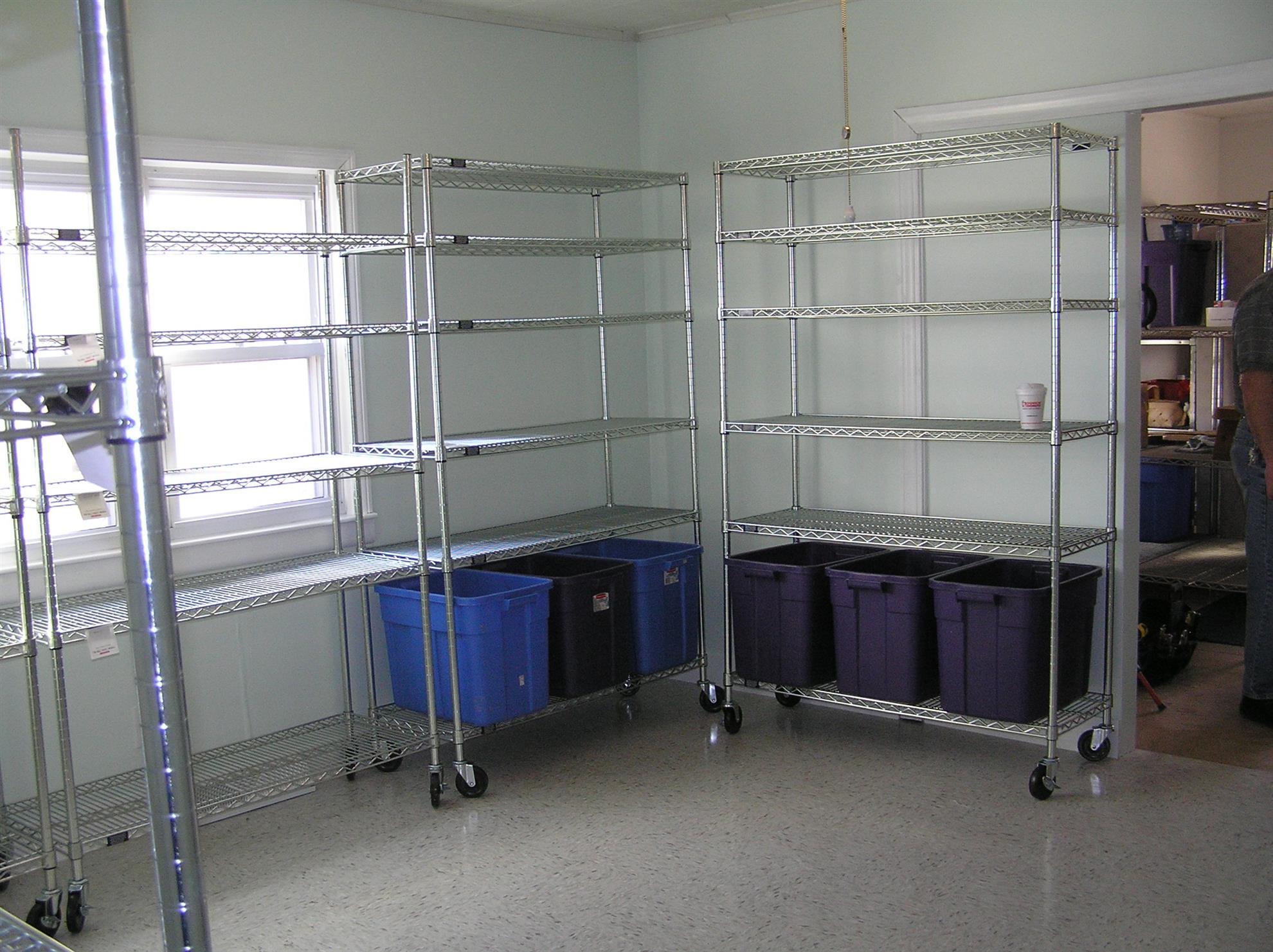
In Rotary Year 2013-2014, the Club met with Parish Cupboard Director Martha Tighe and discussed the facility’s most critical needs and how the Club could help. The hub of the facility was a working pantry used to sort, store, and move all incoming and outgoing food donations. The pantry was not conducive to the work and was in need of repair. The selected project replaced the fixed shelving with adjustable shelving, and renovated the pantry including painting and new flooring.
The project accomplished the following objectives:
- Increased the pantry’s storage capacity and usability by approximately 1/3 by replacing the wooden shelving with modern, fully adjustable shelving
- Increased efficiency of the volunteer staff through greater storage and better organization, allowing the staff to sort and stack incoming groceries, fill grocery orders, and prepare meals in less time with less volunteers
- Improved safety for the volunteer staff by replacing the floor
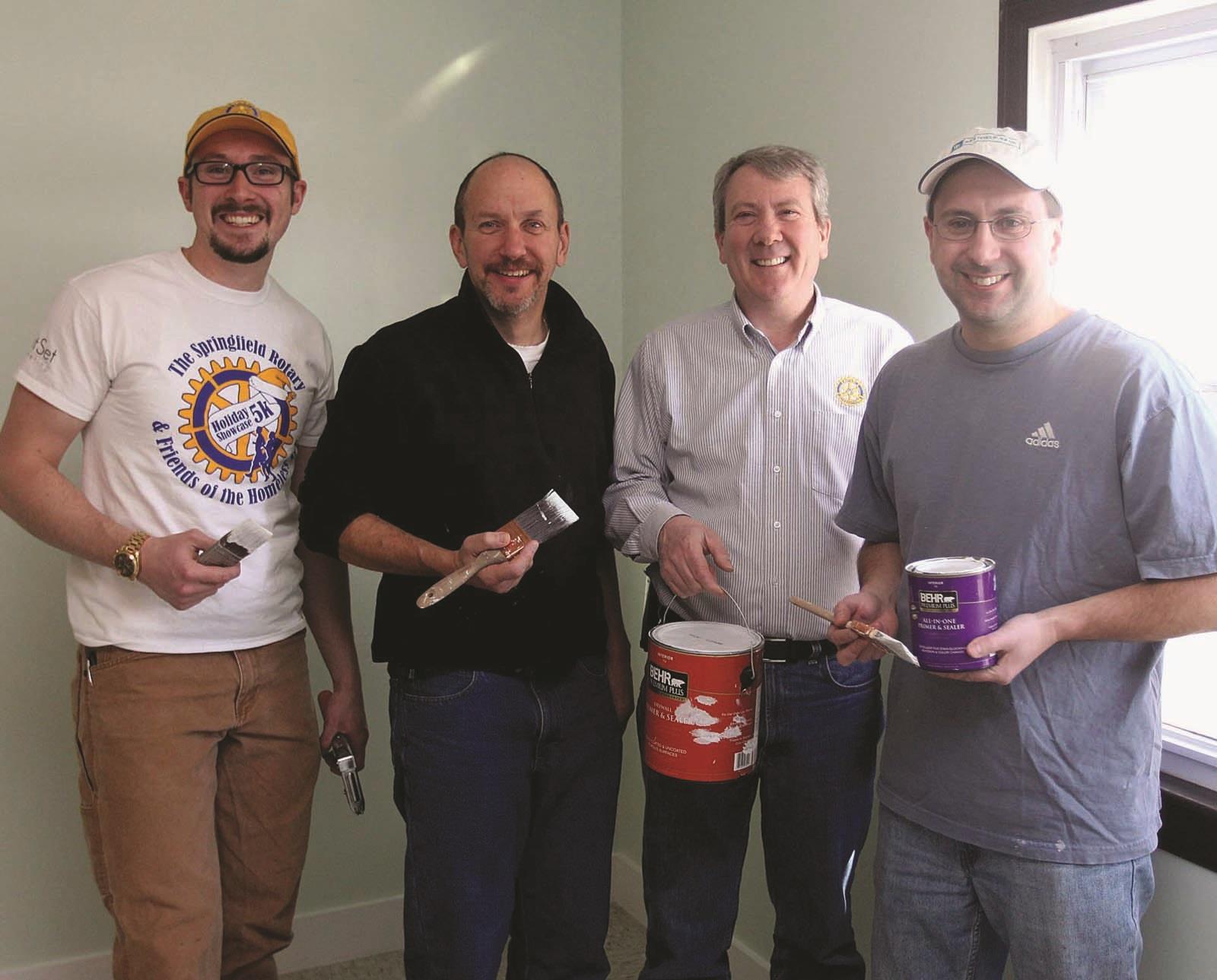
Club Members were responsible for all aspects of the pantry renovation, excluding the installation of the flooring. This included emptying the pantry of groceries, removing the existing flooring and wooden cabinets, prepping and painting the walls, assembling and positioning the new shelving, and then restocking them with groceries. In addition, the Club has a long history of supporting the Parish Cupboard through food drives at regular club meetings and through its Community Grants program.
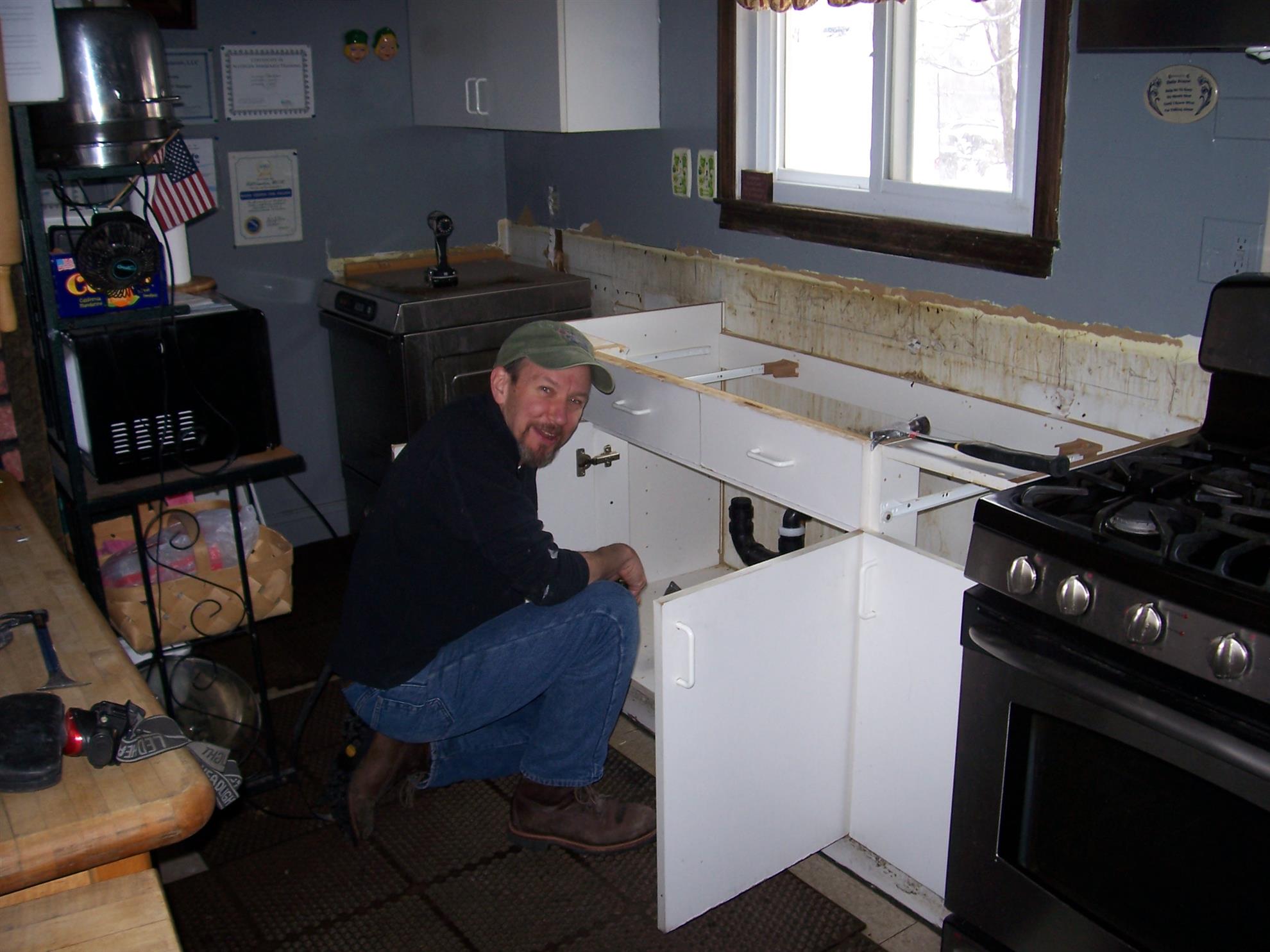
In Rotary Year 2014-2015, the Club renovated the Parish Cupboard’s kitchen. The on-site kitchen was used to prepare and serve hot meals to individuals and families. The project included painting the kitchen, replacing the floor, and replacing the sink and countertops with commercial grade stainless steel.
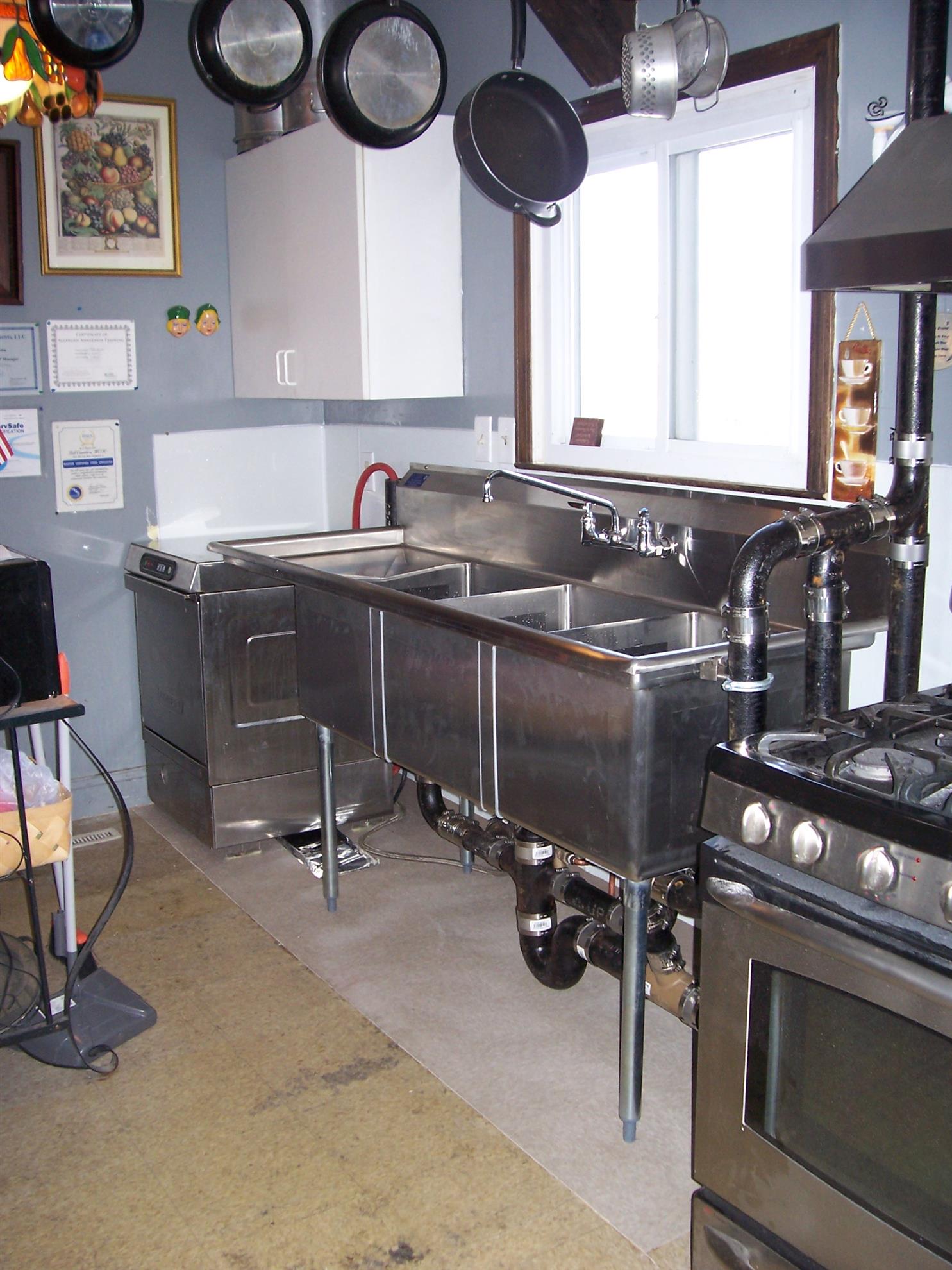
The project accomplished the following objectives:
- Increased efficiency and improved sanitation through the use of commercial grade stainless steel; of particular benefit was upgrading the single residential sink to an oversized commercial grade multi-compartment sink, allowing the oversized cookware to be cleaned more quickly and thoroughly
- Improved safety for the volunteer staff by replacing the floor
Global Grants Program
The Rotary Foundation of Rotary International provides all Rotary Clubs with the opportunity to receive Global Grants, which support large international activities with sustainable, measurable outcomes that fall under Rotary’s Areas of Focus. Global Grants require a host sponsor and an international sponsor, creating an international partnership. They must be supported by the benefitting community and led by its Rotarians, have measurable results, and be sustainable by the community after the grant is completed. The Global Grants program provides the funding and the framework to orchestrate these large scale projects.
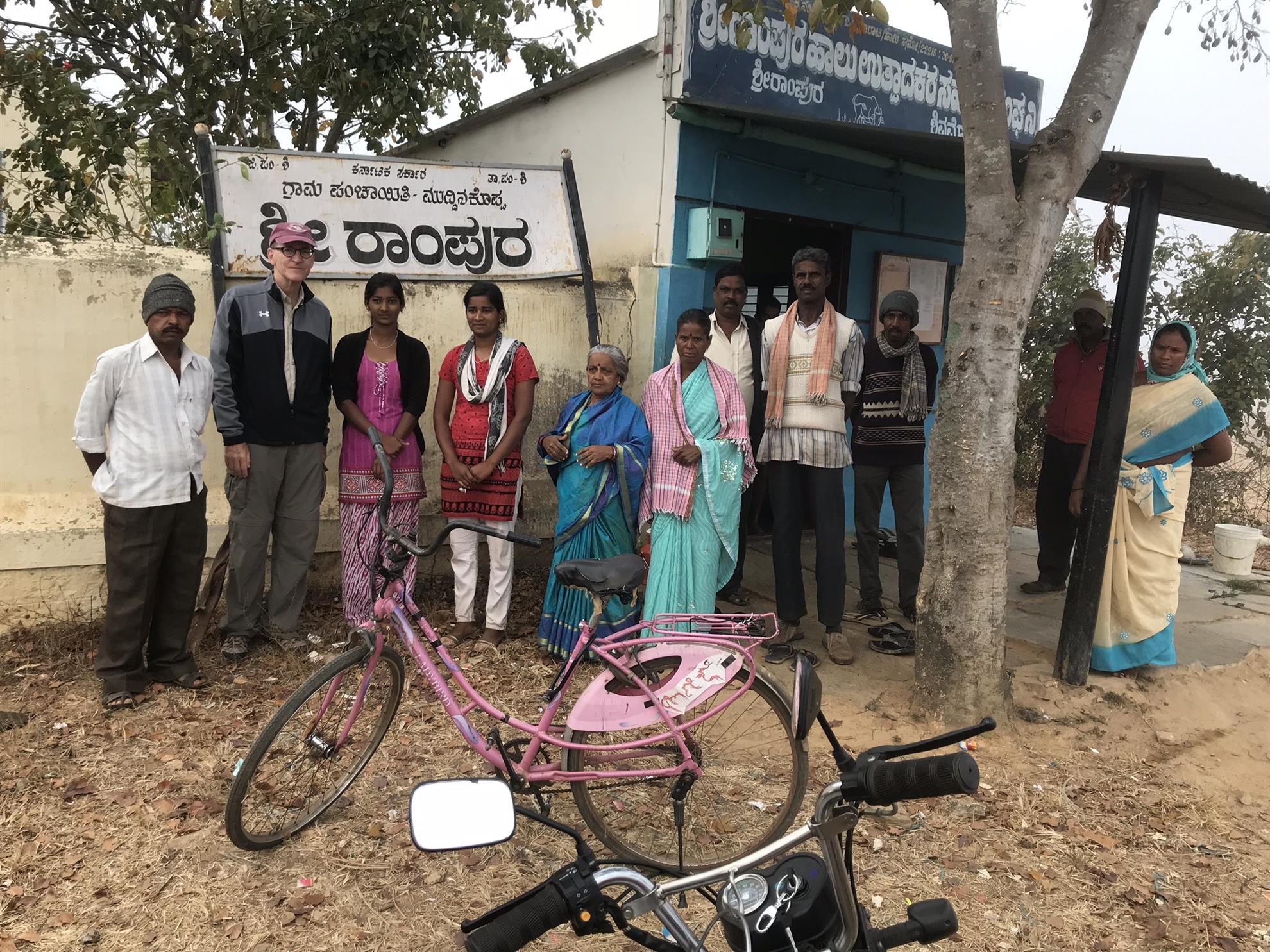
Shimoga, officially known as Shivamogga, is a city and the district headquarters of Shimoga district in the central part of the state of Karnataka, India. Shimoga has a total population of 322,650 (2011 Indian Census) and has a total area of about 50 square miles.
The West Springfield Club has utilized the Global Grants program (and Matching Grants, its predecessor program), to complete seventeen separate projects to benefit the people of Shimoga and its surrounding villages. Six of those seventeen relate to a single initiative and will be addressed in this article.
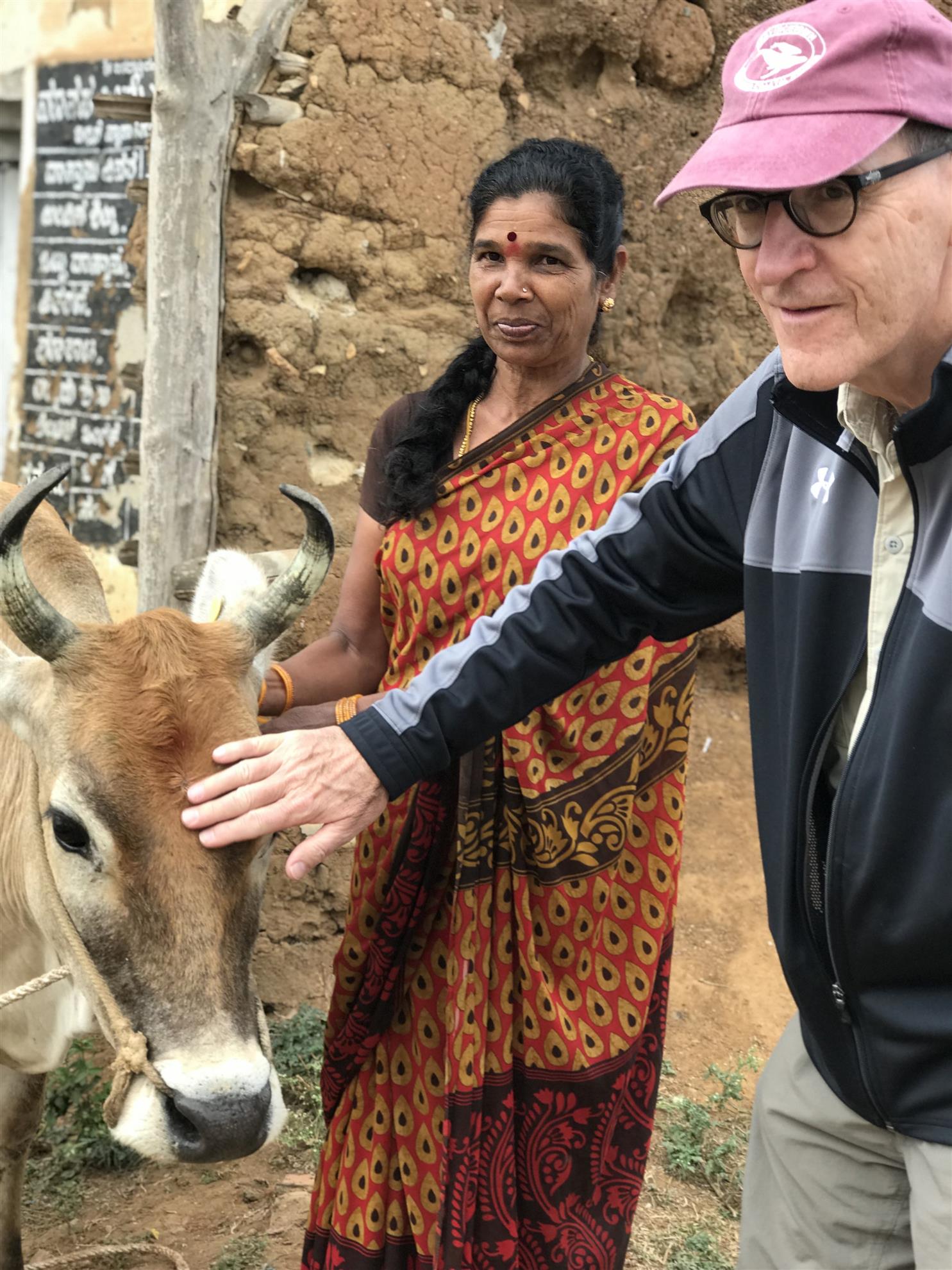
In Rotary Year 2008-2009, West Springfield Rotarian Bob MacDonald forged a partnership with the Shimoga Rotary Club. After assessing the community's most critical needs, a project was proposed to empower women by providing hybrid milch cows to sixty-five women. These women had no vocational skills, and were therefore stigmatized by their husbands, children, and others living in their villages.
The women were each given a cow and taught how to care for it. This provided milk for their families, but also the opportunity to earn money by selling the extra milk.
By bringing money into their households, these women became valuable contributors, changing the family dynamic. That change, combined with their new vocational skills, provided life-altering self esteem.
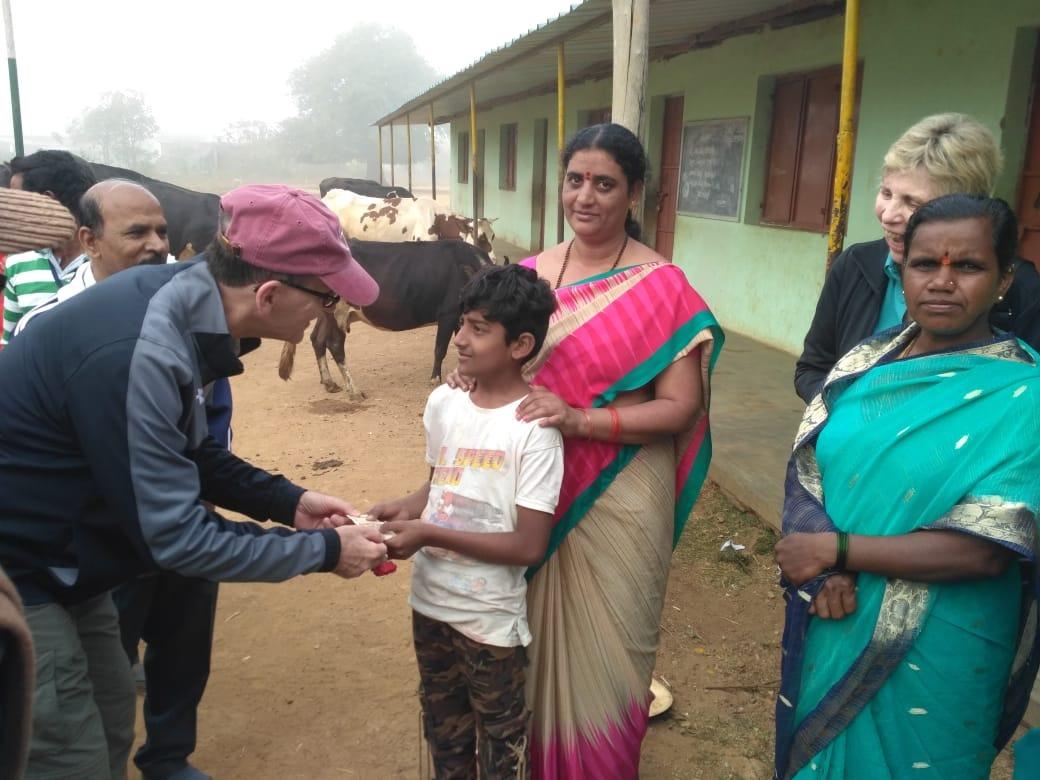
As just one example, consider Mrs. K. L. Pushpa's story. She invested her profits and purchased four additional cows. She has been so successful, that she now employs her husband, who earns more money than in his previous job. In addition, she pays her son ten Indian rupees each time he delivers milk to the cooperative creamery. He saves half of the earnings for his future education and gives the other half to his sister for her personal needs.
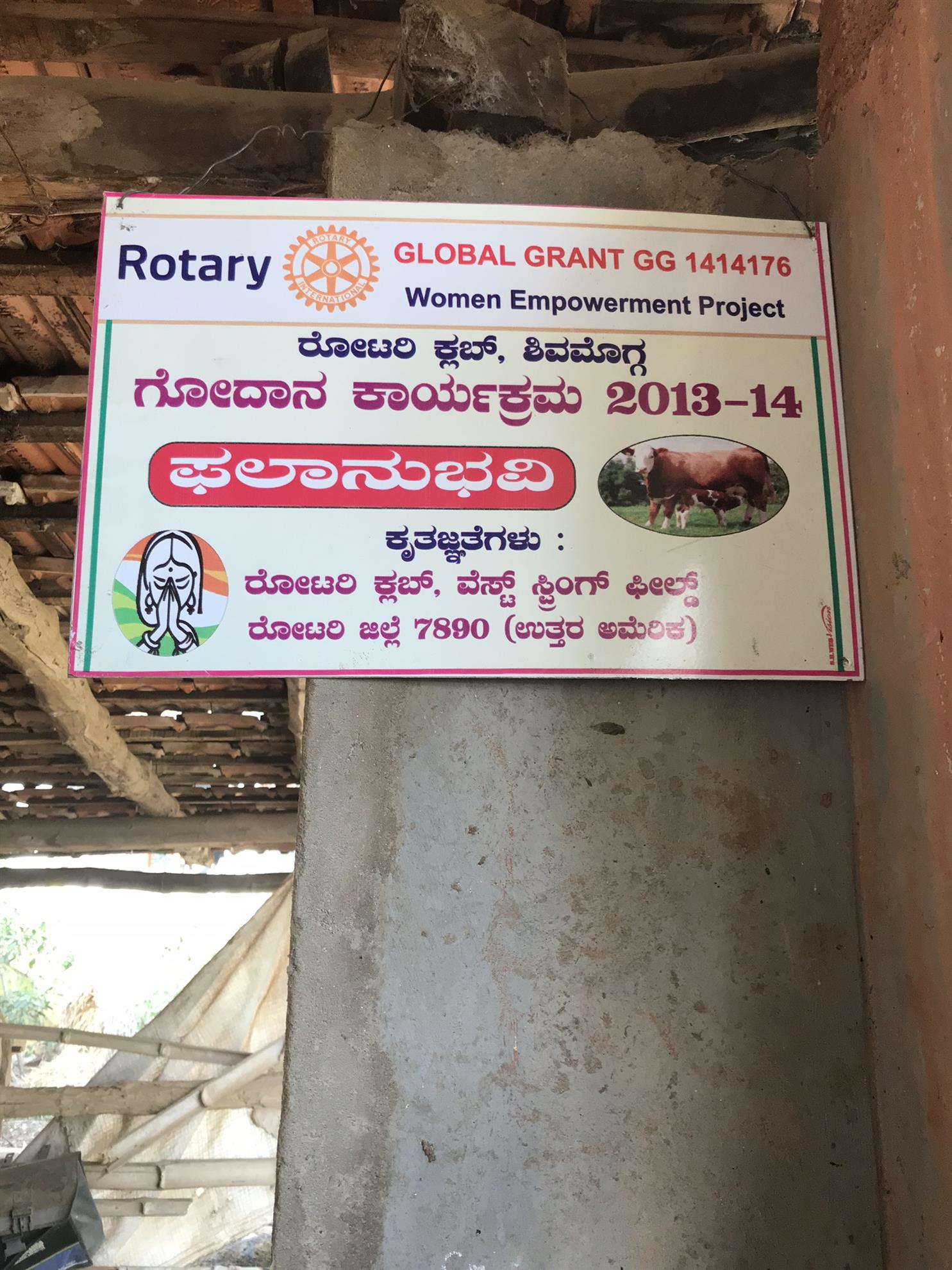
Utilizing the Global Grants (and Matching Grants) programs, the Rotary Club of West Springfield has partnered with the Shimoga Rotary Club on six separate projects to provide milch cows to women in need- in Rotary Years 2008-2009, 2010-2011, 2011-2012, 2012-2013, 2013-2014, and 2019-2020. Each of the Global Grants received funding from both the West Springfield and Shimoga Clubs, Rotary District 7890 of which the West Springfield Club belongs, Rotary District 3182 of which the Shimoga Club belongs, and The Rotary Foundation.
The following budget from the 2019-2020 project illustrates this financial partnership and the power of the matching contributions from The Rotary Foundation, which matches Club donations fifty cents on the dollar and District donations dollar for dollar:

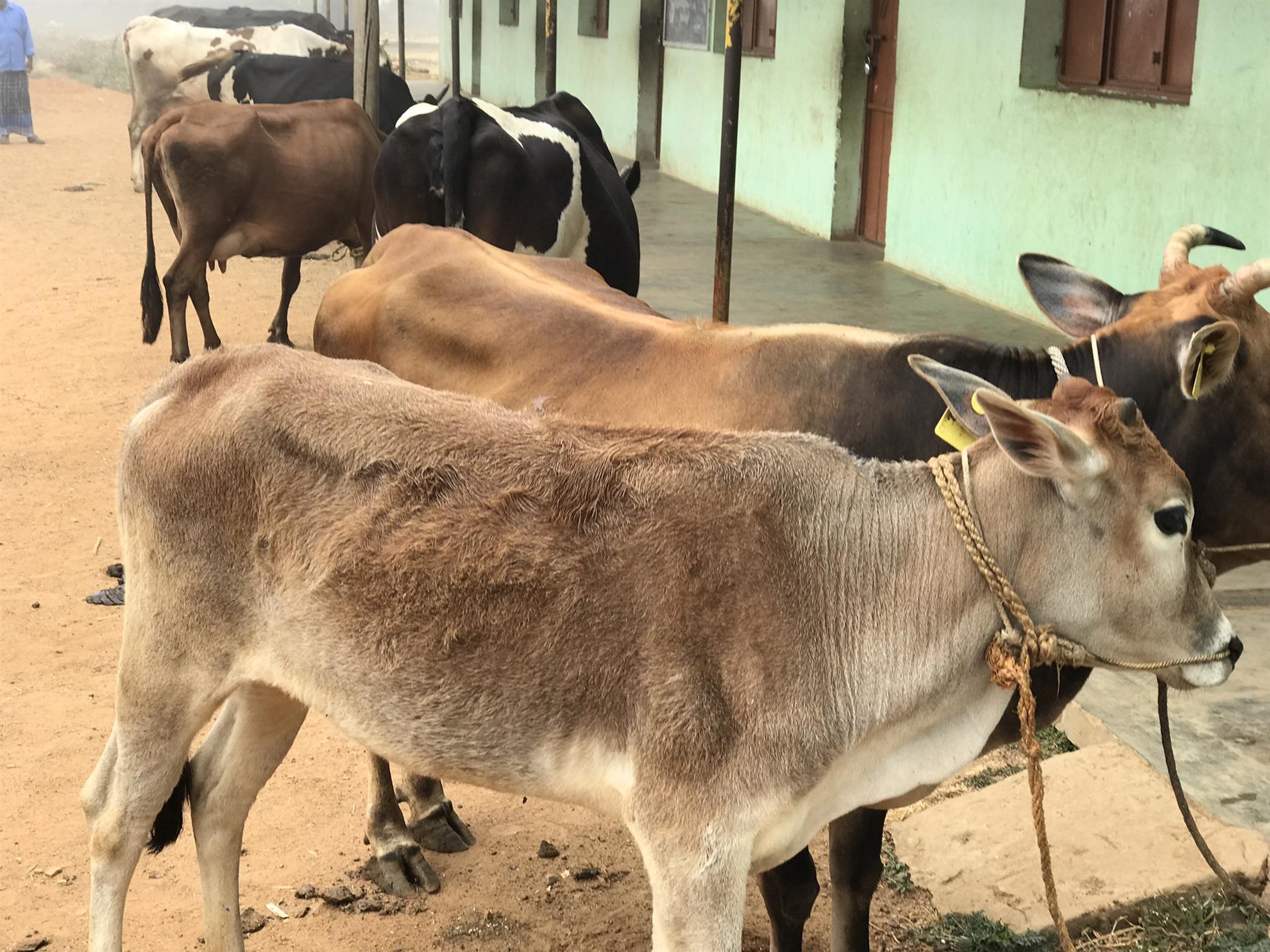
Combined, the six projects provided total funding of $151,480, of which $17,370 was provided by the West Springfield Club.
375 cows have been given directly from grant funding. Whenever a cow gives birth to a female calf, it is given to an additional woman. Births have accounted for an additional fifty cows, bringing the total to 425. In addition, the male calves are kept by the women and used at their discretion.
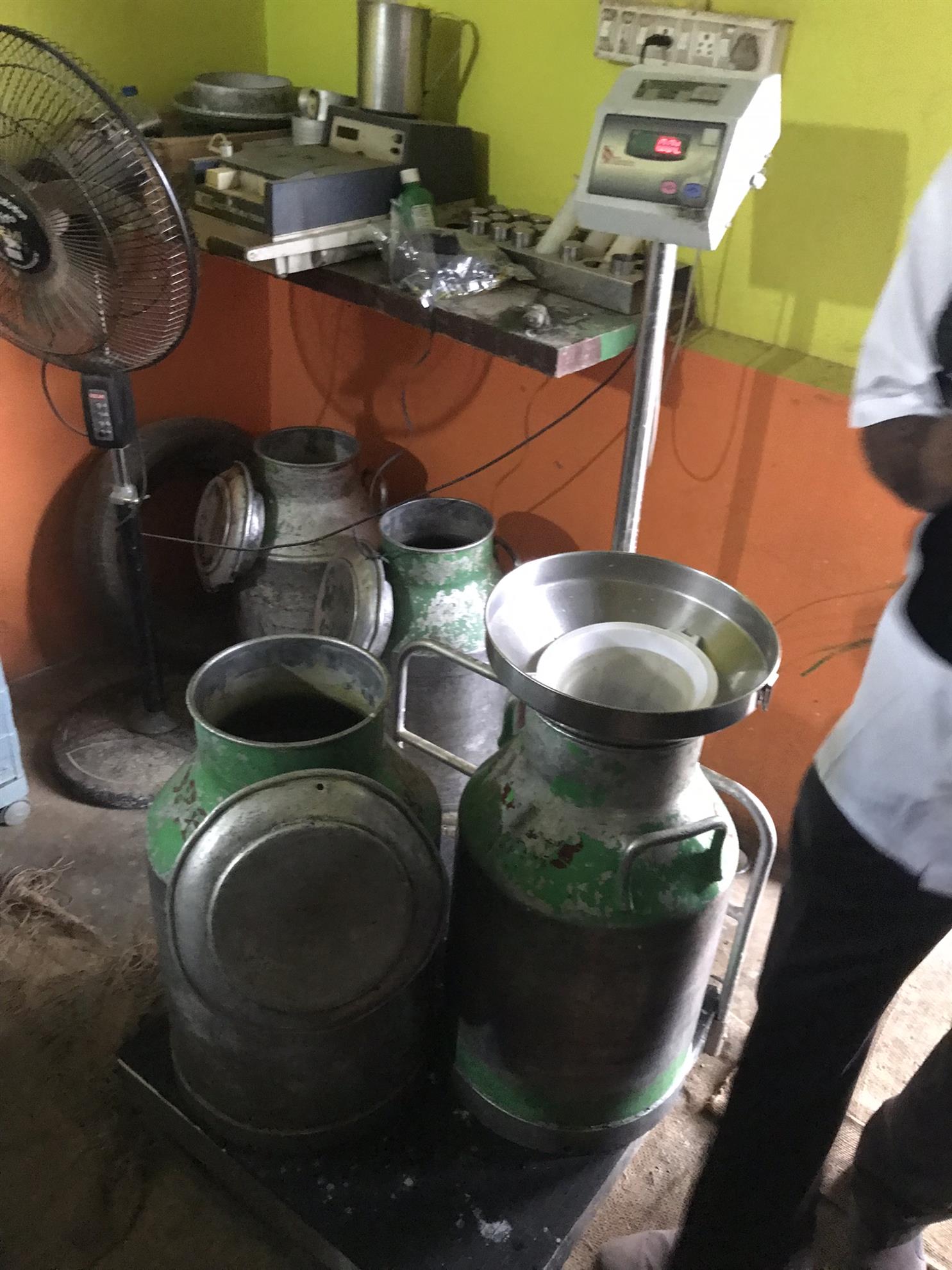
The 425 women who own a cow have founded a cooperative creamery. At the creamery, the milk is weighed and tested for quality. The higher the quality of milk, the more money is paid for the milk. The funds are then electronically deposited into the women's bank accounts. The cooperative creamery also allows the women to purchase supplies and feed for the their cows at a competitive rate.
"Rotary changes us and those we serve. I believe we can change the world one life at a time."
-Paul Harris, Founder of Rotary International
To learn more about Rotary International, the Rotary Club of West Springfield, and how you can join our organization, please visit our Contact Us page.



.png)












